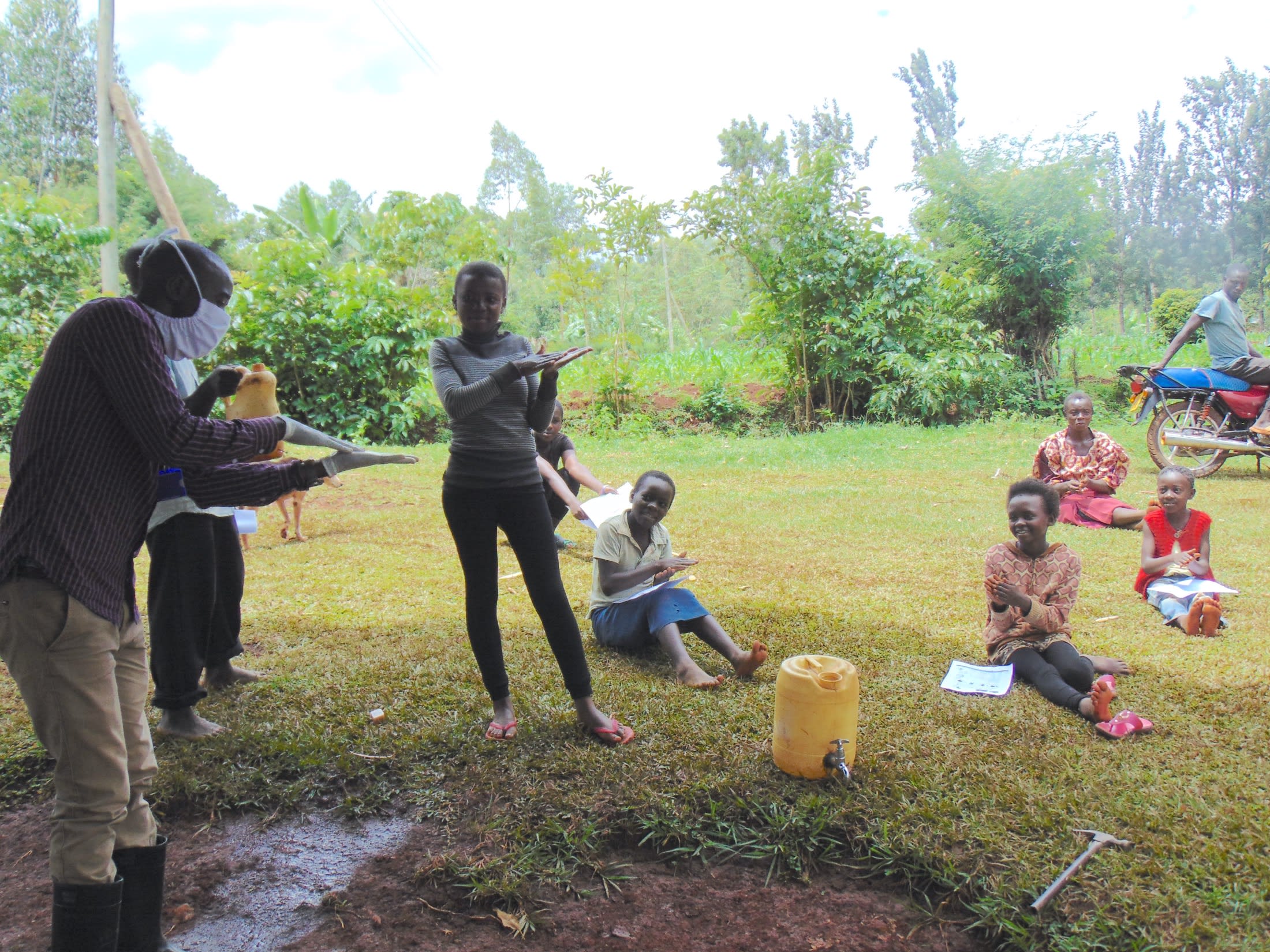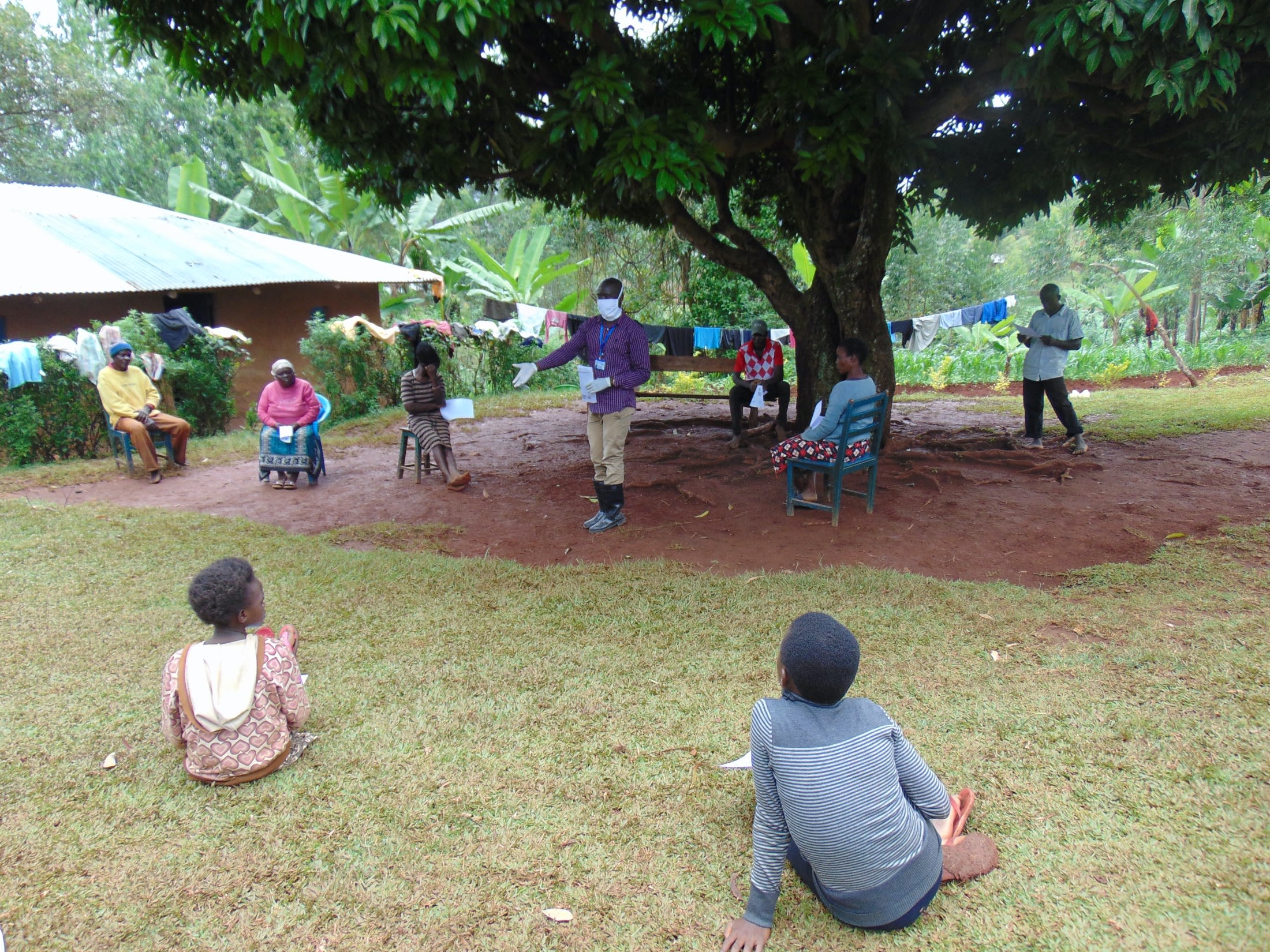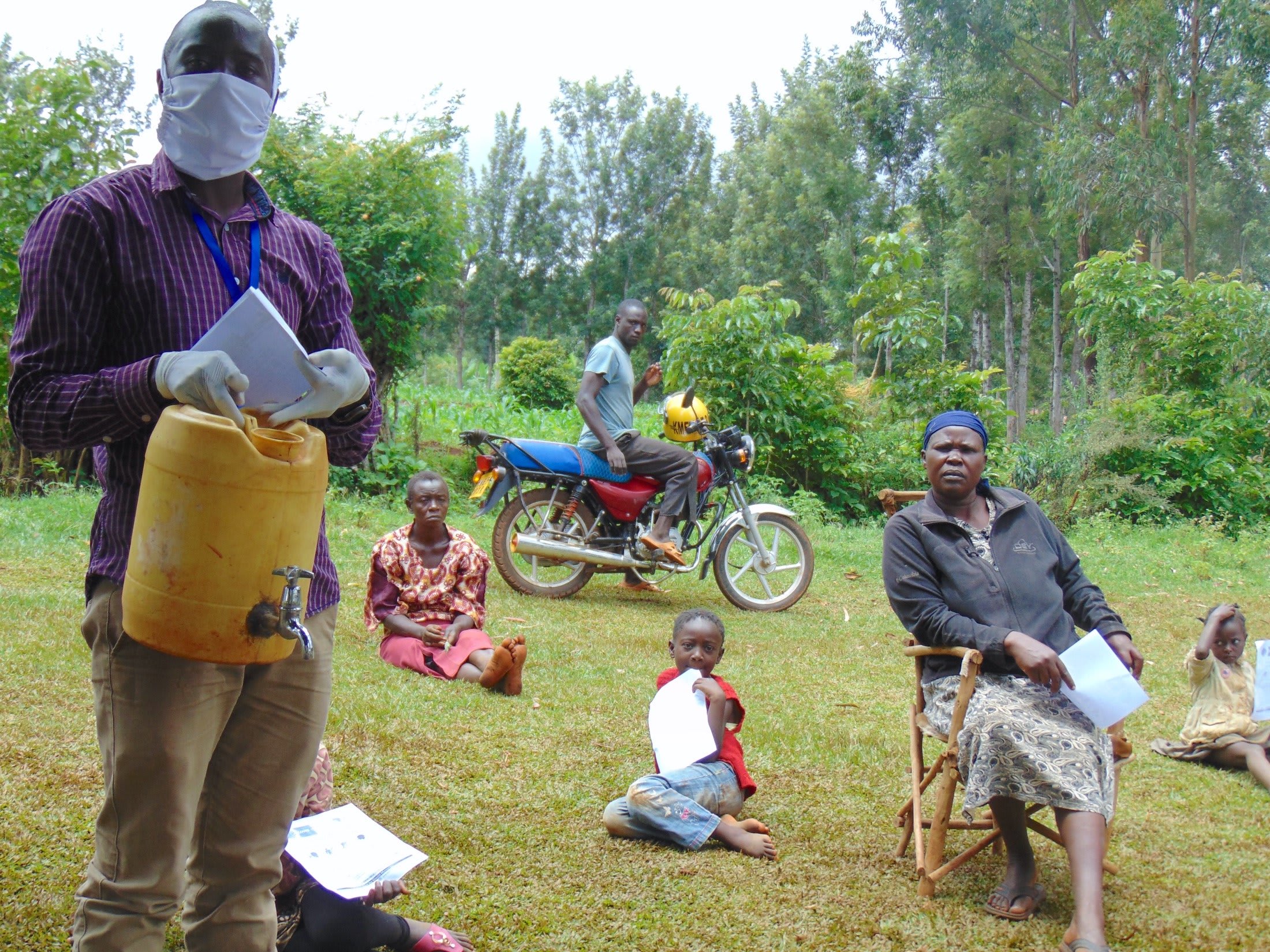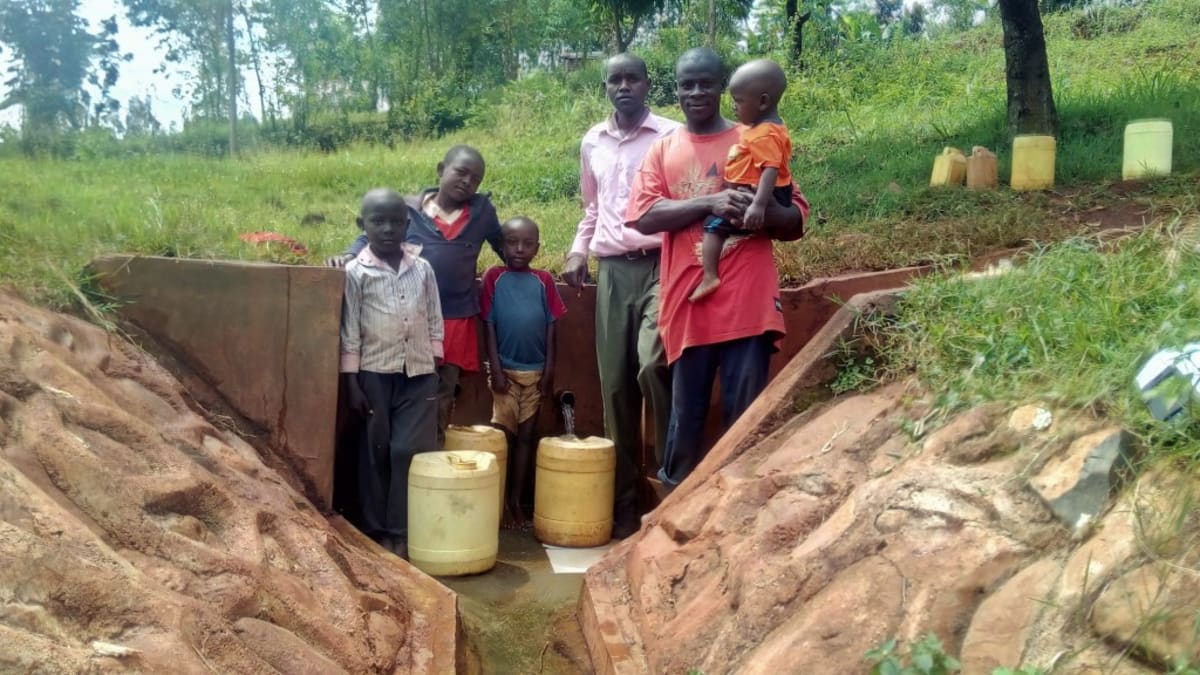This project is a part of our shared program with Western Water and Sanitation Forum (WEWASAFO). Our team is pleased to directly share the below report (edited for clarity, as needed).
Welcome to the Community
This unprotected spring is located in Emmuli Ebutuku Village, Esiandumba sub-location, Emasaba location, Mwibona Ward, Luanda Sub-County of Vihiga County. The spring serves a total of 60 households with a village population of 500 people - 240 are men and 260 are women. Most locals make a living from farming, growing crops like sugarcane, maize, potatoes, and other vegetables. The terrain is relatively flat and receives an adequate amount of rainfall, both conducive to farming.
Due to poor hygiene and lack of safe, clean drinking water in the area, many lives are endangered. These people are in need of safe water to curb waterborne and hygiene-related diseases. This will cut the costs of constant treatment and medicine, giving locals the chance to use their money on more productive economic activities.
Not only do they need the improved water source, but they also need proper training on good hygiene and sanitation practices. Knowledge of the steps they can take to improve their environment and maintain cleanliness in their homes, at school, at the spring, and for themselves will greatly decrease the cases of disease.
And with the need, there is a readiness and willingness to provide the local materials needed for project construction. Local families will also provide accommodation and food for the artisans during construction, as well as contribute food for the participants of the Community Health Worker and Water and Sanitation Management Committee trainings.
Water Situation
The community members said that they had suffered from waterborne complications like typhoid and stomachaches as a result of drinking water from John Maganga Spring. Because the spring is unprotected, it is open to contamination from surface runoff and people stepping into the water as they fetch. The spring is out in the open so there's a lot of activity around it, even farming! Open defecation was also observed during our initial visit. The only alternative source of water available is during the rainy season when families set up gutters on their roofs to collect rainwater (which also happens to be unsafe!).
Women and children draw water from the spring using small containers, pouring them into a 20-liter jerrycans to transport back home. The water from these sources is used for drinking, cooking, washing, watering animals, and irrigation on farms (particularly during the dry spells).
Plans: Hygiene and Sanitation Training
Having John Maganga Spring protected will give the community a chance to enjoy better health. Good health education and an elected water user committee resulting from training will ensure that cleanliness is maintained both at home and the spring. Training participants will learn about disease transmission, how to properly gather and store water, and about sanitation facilities such as latrines, dish racks, clotheslines, and hand-washing stations. By the end of three days of training, five households will be selected to benefit from new sanitation platforms (safe, clean floors) for latrines. John Maganga, who the spring is named after, says "We have had situations in the community where members use mosquito nets as fences on their gardens, while others defecate openly! If this initiative can help us get sanitation platforms, it will help towards our health and protection of our water sources."
Plans: Sanitation Platforms
Community members will decide on the five families most in need of a new latrine. These families will receive a sanitation platform, which is a concrete floor that makes a great foundation for a safe and clean latrine. These families will prepare by sinking a pit that the concrete slab can be placed over. These five new latrines will go a long way in reducing the level of open defecation in this community!
Plans: Spring Protection
Locals are eagerly preparing for this spring protection project. They have agreed to gather the local materials needed for construction to begin, which include sand, ballast, hardcore, bricks, fencing poles, and even a few helpful hands!
These actions will give children the opportunity to stay in school all the time, thus improving their academic performance. Locals also believe that the decrease of common water and hygiene-relate diseases will save them money. That's undoubtedly true!

 Protected Spring
Protected Spring
 Rehabilitation Project
Rehabilitation Project





























